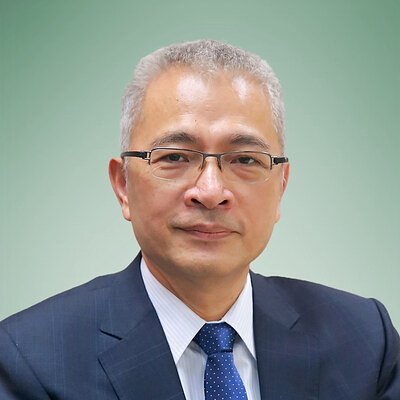
Taiwan's ITRI Bets on Sustainability & Collaboration Under New Leadership
As Taiwan navigates a complex global tech landscape, the Industrial Technology Research Institute (ITRI) is doubling down on sustainability and international partnerships under the guidance of new leadership. This article delves into ITRI’s strategic vision.
Taiwan's ITRI Bets on Sustainability & Collaboration Under New Leadership
TAIPEI, Taiwan – As global technology competition intensifies and sustainability concerns rise, Taiwan’s Industrial Technology Research Institute (ITRI) is positioning itself as a key driver of innovation and industrial transformation. With Dr. Pei-Zen Chang recently stepping into a leadership role, the institute is reinforcing its commitment to applied research and strategic international collaborations, particularly in areas like semiconductor technology, advanced materials, and green initiatives.
ITRI, a non-profit research and development organization, has long been a cornerstone of Taiwan’s economic success, credited with incubating industry giants like TSMC and UMC. Now, the institute is looking to build on that legacy, focusing on addressing some of the world’s most pressing challenges – from climate change and healthcare to resource scarcity and cybersecurity.
“The global tech landscape is rapidly evolving, and Taiwan needs to stay ahead of the curve,” said one industry analyst familiar with ITRI’s operations. “ITRI plays a crucial role in translating research into practical applications and fostering a culture of innovation.”
A Strategic Shift Towards Sustainability
Central to ITRI’s current strategy is a strong emphasis on sustainability. The institute’s 2035 Technology Strategy outlines a vision for leadership in areas like smart living, quality healthcare, a sustainable environment, and resilient infrastructure. This isn’t simply about adopting ‘green’ technologies; it’s about fundamentally rethinking how things are designed, manufactured, and used.
“We’re moving beyond incremental improvements to truly disruptive innovations,” explains a source within ITRI. “Our goal is to create technologies that not only reduce environmental impact but also enhance economic competitiveness.”
Recent projects exemplify this commitment. ITRI has been developing advanced materials for renewable energy storage, energy-efficient building designs, and innovative water purification systems. The institute is also actively exploring circular economy models, aiming to minimize waste and maximize resource utilization.
“The move towards sustainability isn't just ethically responsible; it’s a smart business decision,” comments a government official familiar with Taiwan’s tech policy. “Consumers and investors are increasingly demanding sustainable products and practices.”
Strengthening International Partnerships
Recognizing that tackling global challenges requires collaboration, ITRI is actively expanding its network of international partners. The institute is forging alliances with leading research institutions, tech companies, and government agencies around the world.
“We believe that open innovation is key to accelerating progress,” stated a source within ITRI’s international collaboration department. “By pooling resources and expertise, we can achieve more than we could alone.”
Recent partnerships include collaborative projects with European universities on advanced materials research, joint ventures with US companies on semiconductor technology, and collaborations with Southeast Asian countries on smart city initiatives.
“ITRI’s ability to build strong relationships with international partners is a major asset for Taiwan,” said a foreign diplomat stationed in Taipei. “It allows Taiwan to participate in global innovation ecosystems and access cutting-edge technologies.”
Navigating the Semiconductor Landscape
Taiwan’s dominance in the semiconductor industry is well-established, and ITRI continues to play a vital role in maintaining that leadership. The institute is conducting research on next-generation semiconductor materials, advanced packaging technologies, and innovative manufacturing processes.
“The semiconductor industry is facing unprecedented challenges, from supply chain disruptions to geopolitical tensions,” said an industry analyst. “ITRI’s research is critical for ensuring that Taiwan remains at the forefront of this vital industry.”
ITRI is also focusing on diversifying its semiconductor research, exploring areas like wide-bandgap semiconductors and neuromorphic computing. This will help Taiwan maintain its competitiveness and adapt to future technological shifts.
Dr. Chang's Vision for the Future
With Dr. Pei-Zen Chang at the helm, ITRI is poised to accelerate its innovation efforts and strengthen its position as a global technology leader. Dr. Chang brings a wealth of experience in materials science, nanotechnology, and science policy. His leadership is expected to foster a more collaborative and agile research environment.
“Dr. Chang is a visionary leader who understands the importance of innovation and collaboration,” said a source familiar with his work. “He is committed to building a sustainable and prosperous future for Taiwan.”
One of Dr. Chang’s key priorities is to enhance ITRI’s ability to translate research into practical applications. This will involve strengthening partnerships with industry and fostering a more entrepreneurial culture within the institute.
“We need to move beyond just generating new knowledge to creating real-world impact,” said a source within ITRI. “Dr. Chang is committed to making that happen.”
As Taiwan navigates a complex and rapidly changing global landscape, ITRI’s commitment to sustainability, collaboration, and innovation will be more important than ever. With Dr. Chang’s leadership and a dedicated team of researchers, the institute is well-positioned to shape the future of technology and drive positive change for Taiwan and the world.
